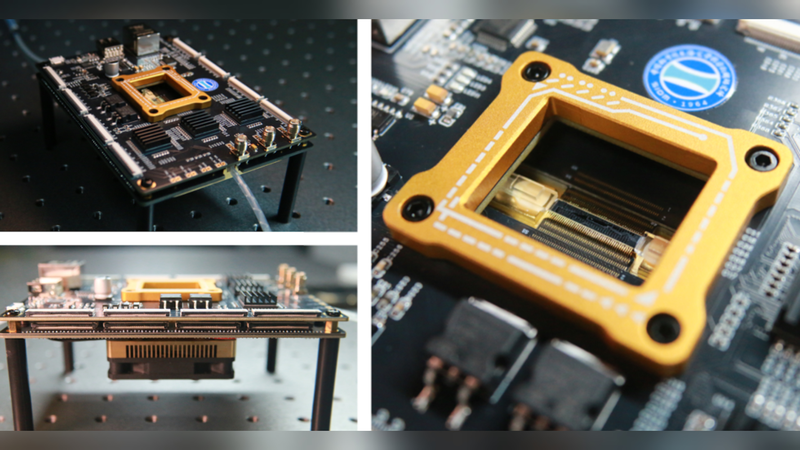Chinese scientists have achieved a breakthrough in computing technology with the development of the world's first ultra-high parallel optical computing chip. The innovation, led by researchers at the Shanghai Institute of Optics and Fine Mechanics (SIOM), delivers a theoretical peak computing power of 2560 TOPS at 50 GHz—a performance comparable to advanced GPU chips like those from NVIDIA.
The chip employs a novel architecture using soliton microcomb sources to create over 100 wavelength channels, enabling simultaneous data processing across multiple light wavelengths. This approach, described as transforming a 'single-lane highway into a super highway,' increases computing power by up to 100 times without expanding hardware size or frequency.
'This architecture demonstrates unprecedented on-chip information density,' said SIOM researcher Xie Peng. Engineer Han Xilin added: 'The parallel processing capability opens new frontiers for latency-sensitive applications.'
The technology holds particular promise for artificial intelligence development, data center optimization, and edge computing devices requiring low latency, such as drone swarms. Its energy-efficient design could reshape semiconductor strategies globally while supporting China's ambitions in next-gen computing infrastructure.
Published as a cover paper in the journal eLight, this advancement positions optical computing as a viable challenger to traditional electronic processors in specialized high-performance applications.
Reference(s):
China builds world's first ultra-high parallel optical computing chip
cgtn.com








